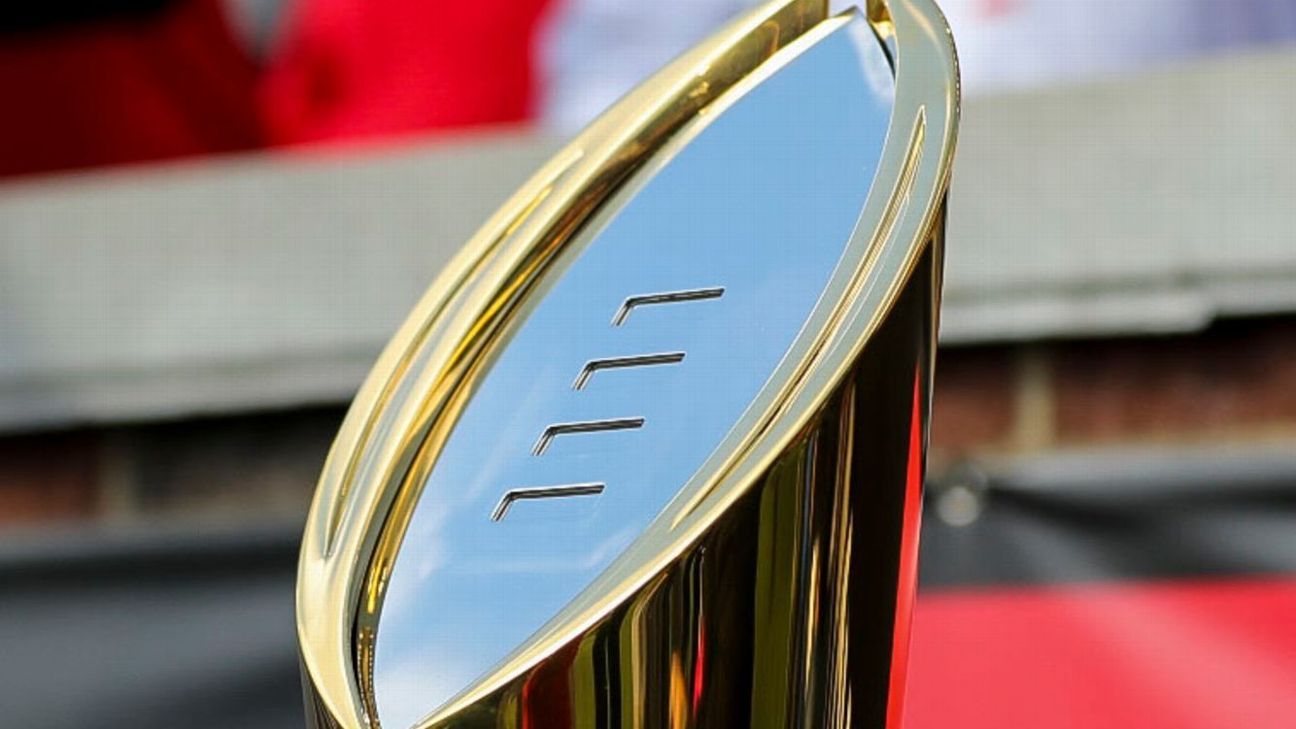INDIANAPOLIS, Ind. — The leaders of the College Football Playoff again failed to come to an agreement about expanding the current four-team field, but they didn’t entirely rule out the possibility it could still happen before the end of the current 12-year contract, which runs through the 2025 season.
Big 12 commissioner Bob Bowlsby, the lone commissioner to give comment as he left the meeting on Sunday morning, just hours before kickoff of the College Football Playoff National Championship Game Presented by AT&T, said the 10 FBS commissioners voted, but “didn’t even get close to unanimity.”
“There are big enough [issues] that remain that we have a lot of work to do,” he said. “I am disappointed. … There’s hold-outs for four, there’s hold-outs for eight, there’s hold-outs for 12. It’s been a frustrating process.”
Beyond the number of teams, there continues to be disagreement in the room about revenue distribution, bowl games, and whether the Power 5 conference champions should be given automatic bids. Mississippi State president Mark Keenum, the chair of the CFP’s board of managers, said the commissioners presented the 11 presidents and chancellors with a 12-team proposal, but the presidents did not take an official vote.
Still, he said he remains optimistic about expansion, and said the commissioners will meet again in a few weeks to continue their discussions.
“I think we’re gonna get there,” Keenum said. “I think that there’s a commitment on the part of our commissioners that we’re going to move forward to come up with an expansion for college football. And you know, time is something that we recognize that we need to move as quickly as we can. … We still have four years remaining, but we obviously want to make a decision well before that. And I know that everyone had arrived here in hopes that we could come to a decision here at this meeting, but we still have some more work to do.”
For three straight days, the 10 FBS commissioners and Notre Dame athletic director Jack Swarbrick met in a ballroom on the third floor of the JW Marriott in downtown Indianapolis, tucked away from the Alabama and Georgia fans there to see the eighth national championship game in the CFP era, and the second in that span featuring two SEC teams.
The grandiose hotel was otherwise buzzing with fans, media, agents and athletic administrators, but few if any realized the future of the sport’s postseason was being decided at the end of a long hallway blocked by a security guard. More than a dozen reporters lingered for the conclusion of Monday’s closed-door meeting of the presidents and chancellors, which happens annually before every national championship game. It was the culmination of eight months of conversations and debates about the 12-team proposal that was made public on June 10 — a total of nine in-person meetings, including Monday’s gathering with the 11 presidents and chancellors who have the ultimate authority over the CFP.
Their discussions on Sunday — just hours before the biggest game of the year — prolonged what has been a painstaking process for fans who have long clamored for a more inclusive system.
“It’s not simple,” Keenum said. “And you get down into the details … for the average layperson, if you will, a sports fan, why not 12 teams? 16 to 32 team, whatever team, how big a deal is there? Well, you get into the specifics, and I have a whole new appreciation for that as well. After I’ve been involved in this process, looking at all the legalities, all the complex matters that have to be resolved. And that’s what we’re going through. It’s not just one school or one conference. You’ve got nationwide, all across the country, conferences that have a stake in this.”
There have been multiple obstacles in preventing a consensus, but the commissioners entered the meetings on Saturday in disagreement about whether the Power 5 leagues should receive automatic bids in a new format. The original proposal recommended the field be comprised by the six highest-ranked conference champions, and the next six highest-ranked teams.
It’s unclear who was the first person to raise the issue of automatic qualifiers — multiple sources have said it was former Pac-12 commissioner Larry Scott before his tenure ended, but the idea was quickly dismissed at the time. Big Ten commissioner Kevin Warren had since stated publicly that he was in favor of it, citing the difficulty of a Big Ten schedule as the reason its champion deserved a spot in the playoff. Others, mostly from the Group of 5 — a label they detest — argued that autonomous stature is an NCAA designation that was never intended to be used as a competitive advantage. If the Power 5 champions were going to get in automatically, they argued privately, why weren’t the others allowed the same benefit?
None of them, though, spoke to the media following their meetings on Saturday and Sunday. The lack of transparency in the process was questioned on Sunday by New York Times reporter Billy Witz.
“Well,” Hancock said on Sunday, “mostly because they’re not finished.”
They’re still not.
“We have entrenched issues,” Bowlsby said, “and they’re no closer to being resolved than they were before.”
